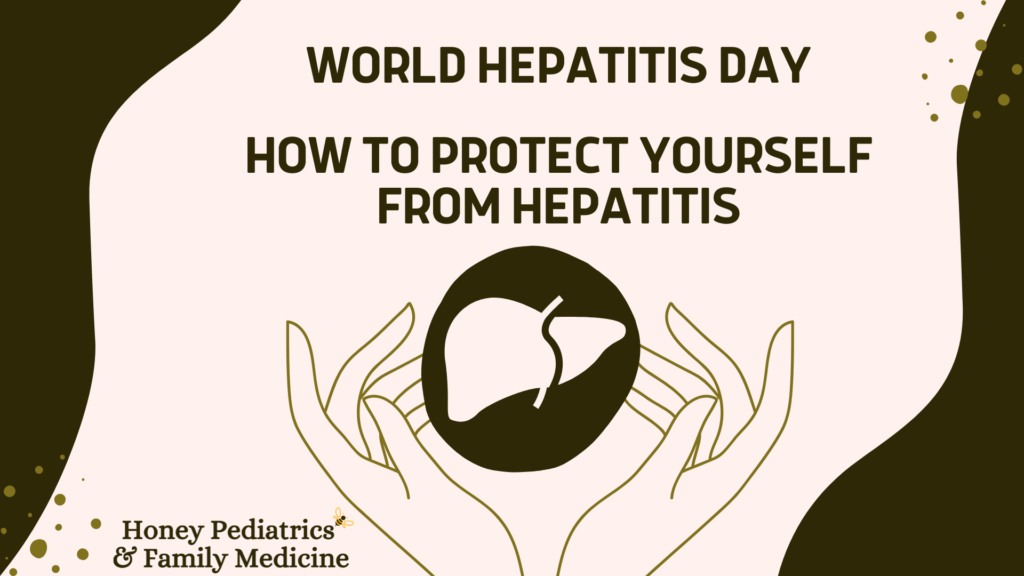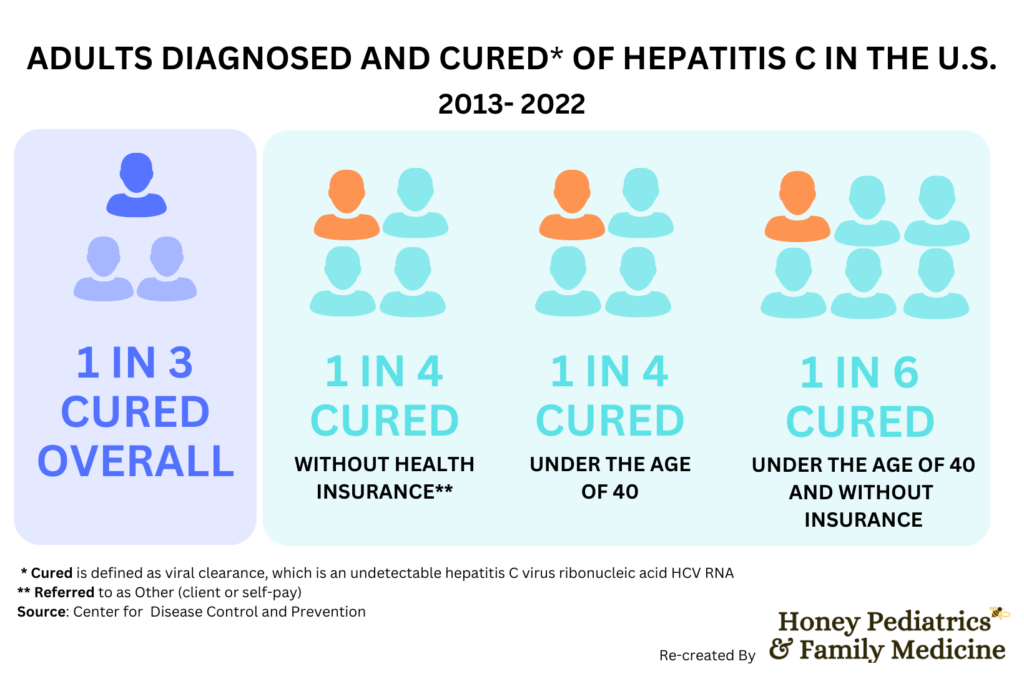
A recent CDC report suggests the majority of people with hepatitis C still have not been cured nearly a decade after breakthrough treatments that clear the viral infection were first approved in the United States.

What is Hepatitis?
Hepatitis is an inflammation of the liver that can be caused by a variety of factors, including viruses, bacteria, and toxins. The most common types of hepatitis are caused by viruses, and these are referred to as viral hepatitis.
There are five main types of viral hepatitis: hepatitis A, B, C, D, and E. Each type of hepatitis is caused by a different virus, and they have different symptoms, severity, and ways of transmission.
Types of viral Hepatitis
Hepatitis A is a short-term (acute) infection that is usually caused by contaminated food or water. It can also be spread through close personal contact. Hepatitis A is rarely serious, and most people recover completely within a few weeks.
Hepatitis B is a more serious infection that can be either acute or chronic. Chronic hepatitis B can lead to cirrhosis (scarring of the liver) and liver cancer. Hepatitis B is spread through contact with blood or body fluids, such as semen, vaginal fluids, and breast milk.
Hepatitis C is a chronic infection that can lead to cirrhosis and liver cancer. Hepatitis C is spread through contact with blood, such as through sharing needles or getting a tattoo or piercing with contaminated equipment.
Hepatitis D is a serious liver infection that occurs only in people who are already infected with hepatitis B. Hepatitis D is spread through the same ways as hepatitis B.
Hepatitis E is a short-term (acute) infection that is usually caused by contaminated water. It is less common than hepatitis A, and most people recover completely within a few weeks.
Symptoms of hepatitis
The symptoms of hepatitis can vary depending on the type of virus and the severity of the infection. Some common symptoms of hepatitis include:
- Fatigue
- Fever
- Loss of appetite
- Nausea and vomiting
- Dark urine
- Light-colored stools
- Joint pain
- Jaundice (yellowing of the skin and eyes)
Treatment for hepatitis
There is no specific treatment for hepatitis A or E. However, these infections usually go away on their own within a few weeks. In some cases, supportive care may be needed to relieve symptoms.
There are treatments available for hepatitis B and C. The type of treatment depends on the severity of the infection and the genotype of the virus. Treatment for hepatitis B and C can be effective in clearing the virus from the body and preventing long-term complications.
Prevention of hepatitis
There are a number of ways to prevent hepatitis, including:
- Getting vaccinated against hepatitis A and B.
- Practicing safe sex.
- Avoiding sharing needles or other drug paraphernalia.
- Drinking only safe water.
- Washing your hands frequently.
Hepatitis is a serious disease that can have a significant impact on your health. However, there are a number of ways to prevent hepatitis, and there are treatments available for the different types of hepatitis.
If you think you may have hepatitis, it is important to see a doctor for diagnosis and treatment. Please schedule an appointment with us or give us a call.



